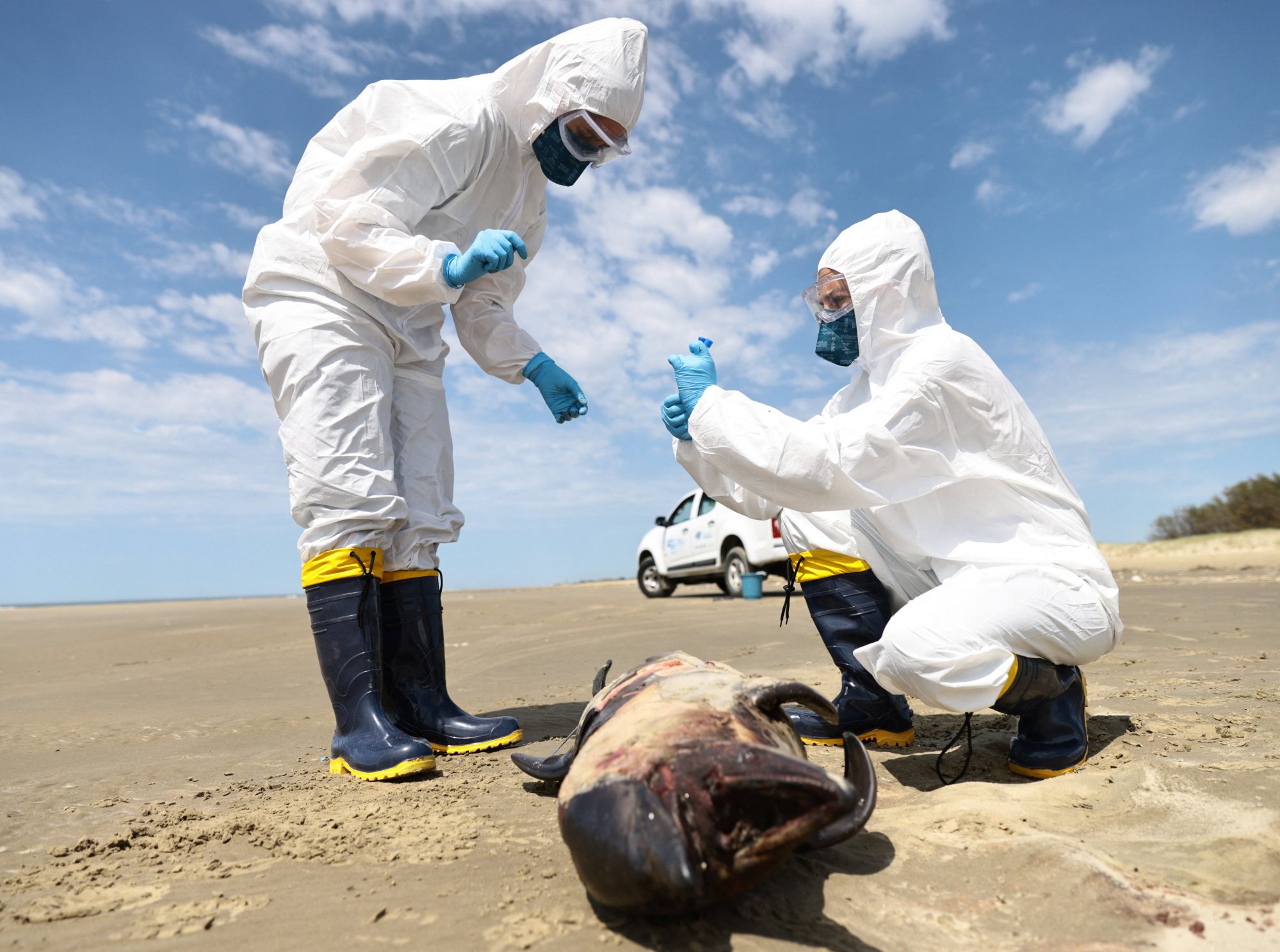Brazil authorities scramble to isolate bird flu virus that killed 900 seals, sea lions
Since Brazil’s first report of HPAI in wild birds in May, the Agriculture Ministry says preventive measures have avoided an outbreak on commercial poultry farms, which could trigger export bans against Brazil, the world’s top chicken exporter.
But the virus has run rampant in other animal populations. In addition to the outbreaks among seabirds, seals and sea lions, authorities have collected samples of dead porpoises and penguins found on beaches, with no confirmed results yet.
Botta said the first diagnosis of HPAI-related sea mammal deaths in Rio Grande do Sul came in September, when unusual mortality rates caught scientists’ attention. Three towns in the state still have active outbreaks.

Brazil’s Agriculture Ministry reported 148 HPAI outbreaks in the country, mostly along the coast, declaring a health emergency to contain the disease, which it says “is not yet considered endemic in Brazil.”